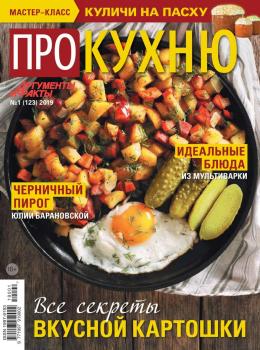MREADZ.COM - много разных книг на любой вкус
Скачивание или чтение онлайн электронных книг.Эксперт 13-2019
Журнал «Эксперт» – одно из самых влиятельных еженедельных деловых аналитических изданий России. За 14 лет своего существования в непростых политических и экономических условиях изданию удалось не только выжить и сохранить своих читателей, но и расширить их круг, заслужив репутацию несомненного лидера российской деловой журнальной прессы.
Худеем Правильно 03-2019
Редакция журнала Худеем Правильно
Журнал для тех, кто стремиться похудеть без вреда для здоровья и удерживает вес. В каждом номере – советы и рецепты по грамотному снижению веса, личный опыт читателей и популярных звезд, научные открытия в области безоперационной коррекции фигуры, действенность которых подтверждается долгосрочными клиническими испытаниями.
Труд 17-18-2019
Одна из старейших общественно-политических газет (издается с февраля 1921 года). Корреспонденты «Труда» ежедневно рассказывают читателям о политике, культуре, спорте, экономике, жизни общества, самых интересных новостях дня и многом другом. Издание рассчитано на широкий круг читателей.
Труд 19-20-2019
Одна из старейших общественно-политических газет (издается с февраля 1921 года). Корреспонденты «Труда» ежедневно рассказывают читателям о политике, культуре, спорте, экономике, жизни общества, самых интересных новостях дня и многом другом. Издание рассчитано на широкий круг читателей.
Труд 7 17-18-2019
Семейный еженедельник. Последние мировые и российские новости. Интервью со звездами, новости спорта, кинематографа , культуры. Телепрограмма.
Труд 7 19-20-2019
Семейный еженедельник. Последние мировые и российские новости. Интервью со звездами, новости спорта, кинематографа , культуры. Телепрограмма.
Смена 03-2019
ЖУРНАЛ «СМЕНА» издается с января 1924 года. На протяжении своей более чем 80-летней истории всегда публиковал журналистские материалы аналитического, полемического и разъясняющего характера, а также востребованные широкой публикой литературные произведения.И сегодня на страницах издания – исторические очерки, статьи о великих художниках и судьбах их творений, эссе о выдающихся ученых, деятелях культуры и искусства Светланы Бестужевой-Лады, Евгении Гордиенко, Дениса Логинова, Ольги Займенцовой, Ирины Опимах, Виктора Омельченко; материалы просветительского характера Евгении Белогорцевой, Евгения Гика, Алексея Кузнецова, Сергея Манукова, Екатерины Постниковой, Татьяны Харламовой… В литературном разделе представлены классические зарубежные и отечественные детективы, малоизвестная проза классиков русской литературы, рассказы и стихи талантливых современных авторов. Сохраняя славные традиции, «Смена» с успехом продолжает «открывать» новые имена молодых прозаиков, поэтов и художников. «Смена» ориентирована на людей, которые выбирают журнал как источник интеллектуального чтения.
Наука и Жизнь 03-2019
Редакция журнала Наука и жизнь
«Наука и жизнь» – ежемесячный научно-популярный иллюстрированный журнал широкого профиля, основанный в 1890 году. Девиз издания: «О науке – доступно, о жизни – серьёзно». Целевая аудитория журнала не ограничена возрастными или профессиональными рамками.Задуманный как журнал для семейного чтения, он охватывает широкий круг тем, среди которых – астрофизика, космонавтика, история, биология, химия, медицина. Помимо научно-популярных статей и новостей науки и техники в журналепостоянно присутствуют такие рубрики, как «Мир увлечений»,«Кунсткамера», «Маленькие хитрости», «Кроссворд с фрагментами»,«Лингвистические задачи», «Советы домашнему мастеру», «Любителям фантастики» и многое другое. С 2007 года в журнале существует раздел для школьников «Ума палата».
Аиф. Про Кухню 01-2019
Редакция журнала АиФ. Про Кухню
Популярный журнал о кулинарии. Предназначен для женщин, которые уверены, что путь к сердцу мужчины лежит через желудок.









